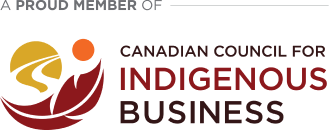Your cart is currently empty!

ISO 31031:2024
ISO 31031:2024 Managing risk for youth and school trips
CDN $312.00
Description
This document gives guidance on managing risk for youth and school trips for both domestic and international travel with specific attention to minors.
This document is applicable to any organization, institution or group that provides activities, visits or trips for children and youth outside of their usual place of operation. These include, but are not limited to:
–¬†¬†¬†¬† educational institutions (schools, colleges and universities);
–¬†¬†¬†¬† children‚Äôs homes (including foster care provision);
–¬†¬†¬†¬† residential tutorial centres (summer schools and language colleges);
–¬†¬†¬†¬† community-based youth groups (scouts, guides, cadet units and youth clubs);
–¬†¬†¬†¬† faith-based groups;
–¬†¬†¬†¬† youth sports clubs;
–¬†¬†¬†¬† youth arts clubs (music, drama, painting and literature);
–¬†¬†¬†¬† adventurous activity centres (day visits and residential);
–¬†¬†¬†¬† commercial and non-commercial providers of visits abroad (offshore sailing, cultural tours, sports, community projects, adventure activities and expeditions);
–¬†¬†¬†¬† tourist attractions, tour operators and other service providers.
This document is applicable to trips of any duration, from day trips visiting local points of interest to months-long trips to other continents. These trips can be for purposes such as excursions, fieldwork, expeditions and adventurous or cultural activities undertaken for educational, research, training or recreational purposes.
This document is applicable any sort of travel under the auspices of an organization, be it one person travelling for an internship or dozens travelling for a sporting match.
This document is applicable to the physical movement between locations, as well as to the events and activities associated with the objectives of the trip.
This document provides good practices to address typical risks arising from activities related to trips. It also includes guidance for creating an emergency response plan.
This document does not apply to groups of vulnerable adults per se. However, some aspects of the guidance can also be relevant to the management of trips for vulnerable adults.
This document does not apply to situations such as minors travelling with their families, as well as how to organize such trips.
This document does not apply to virtual travel, although some parts of it can be relevant.
Edition
1
Published Date
2024-10-02
Status
PUBLISHED
Pages
47
Format 
Secure PDF
Secure – PDF details
- Save your file locally or view it via a web viewer
- Viewing permissions are restricted exclusively to the purchaser
- Device limits - 3
- Printing – Enabled only to print (1) copy
See more about our Environmental Commitment
Abstract
This document gives guidance on managing risk for youth and school trips for both domestic and international travel with specific attention to minors.
This document is applicable to any organization, institution or group that provides activities, visits or trips for children and youth outside of their usual place of operation. These include, but are not limited to:
-     educational institutions (schools, colleges and universities);
-     children’s homes (including foster care provision);
-     residential tutorial centres (summer schools and language colleges);
-     community-based youth groups (scouts, guides, cadet units and youth clubs);
-     faith-based groups;
-     youth sports clubs;
-     youth arts clubs (music, drama, painting and literature);
-     adventurous activity centres (day visits and residential);
-     commercial and non-commercial providers of visits abroad (offshore sailing, cultural tours, sports, community projects, adventure activities and expeditions);
-     tourist attractions, tour operators and other service providers.
This document is applicable to trips of any duration, from day trips visiting local points of interest to months-long trips to other continents. These trips can be for purposes such as excursions, fieldwork, expeditions and adventurous or cultural activities undertaken for educational, research, training or recreational purposes.
This document is applicable any sort of travel under the auspices of an organization, be it one person travelling for an internship or dozens travelling for a sporting match.
This document is applicable to the physical movement between locations, as well as to the events and activities associated with the objectives of the trip.
This document provides good practices to address typical risks arising from activities related to trips. It also includes guidance for creating an emergency response plan.
This document does not apply to groups of vulnerable adults per se. However, some aspects of the guidance can also be relevant to the management of trips for vulnerable adults.
This document does not apply to situations such as minors travelling with their families, as well as how to organize such trips.
This document does not apply to virtual travel, although some parts of it can be relevant.
Previous Editions
Can’t find what you are looking for?
Please contact us at:
Related Documents
-

ISO 22318:2021 Security and resilience – Business continuity management systems – Guidelines for supply chain continuity management
0 out of 5CDN $233.00 Add to cart -

ISO 18128:2024 Information and documentation – Records risks – Risk assessment for records management
0 out of 5CDN $273.00 Add to cart -

ISO 55001:2024 Asset management – Asset management system – Requirements
0 out of 5CDN $173.00 Add to cart -

ISO 56003:2019 Innovation management – Tools and methods for innovation partnership – Guidance
0 out of 5CDN $233.00 Add to cart







